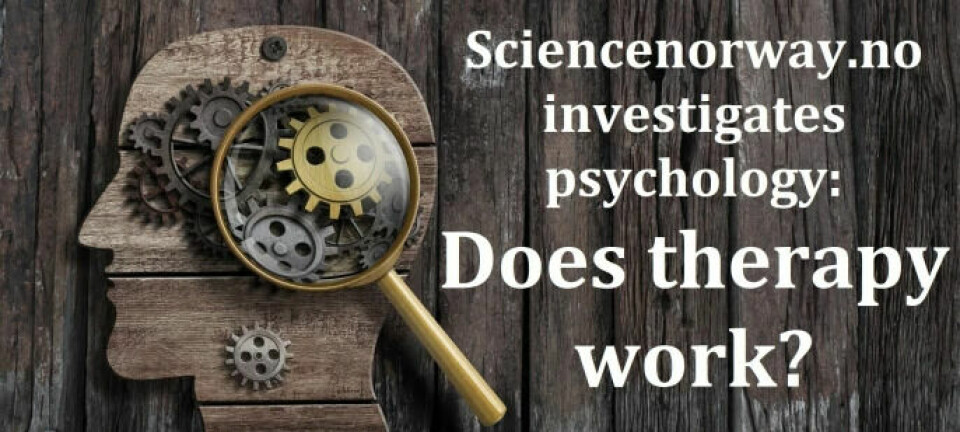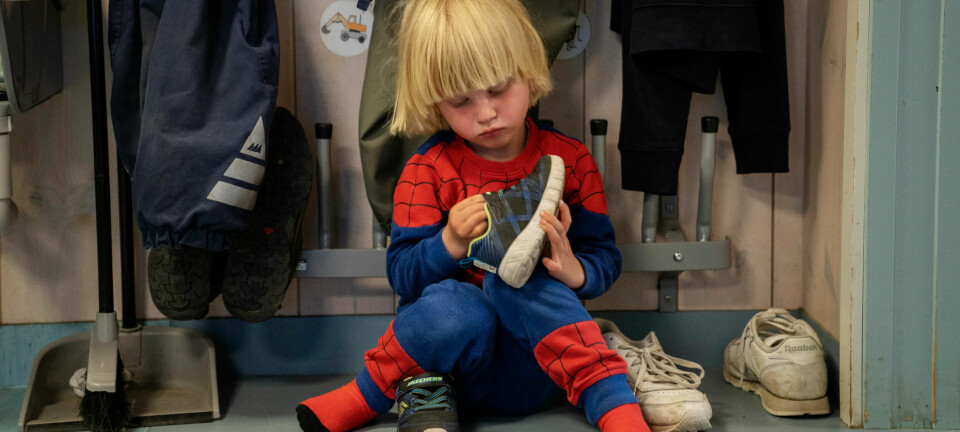
What actually happens when someone gets better from seeing a psychologist?
No one knows.
Researchers know neither what causes mental health problems nor how therapy works.
Can patients get just as well by talking to someone who is not a psychologist?
Researchers have no idea why some people get better from going to therapy.
28-year-old Jonas Ressem has a master's degree in
psychology.
But he has not completed professional postgraduate training – meaning the education you must have to work as a psychologist.
Nevertheless, he volunteers in a low-threshold service for young people struggling with mental health problems. A couple of times a week, he has video calls with individuals seeking help.
“The people I’ve talked to are typically in their 20s. They are often people going through difficulties. There may be problems in their relationship or mild symptoms of anxiety and depression,” Ressem says.
Recently, he posed a daring question in an op.ed on Psykologisk.no: "Can just about anyone offer talk therapy?" (link in Norwegian)
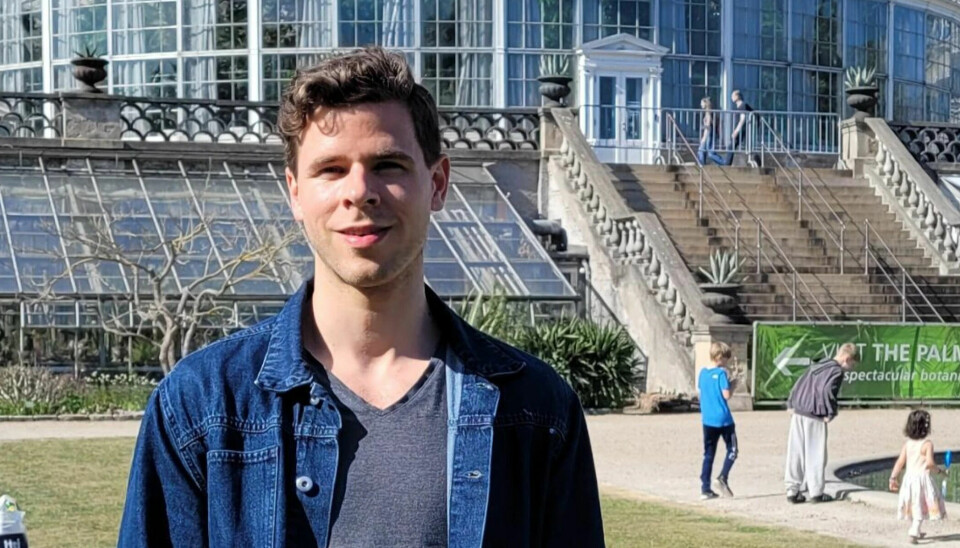
What helps in psychotherapy?
When waiting lists for psychologists are incredibly long and people need help, can't other compassionate, attentive, and supportive individuals fulfill a similar role?
The question is far from stupid.
What is it that actually helps when you receive treatment from a psychologist?
There is evidence to suggest that specific treatment techniques and professional experience matter far less than one might think.

A specific model
But first: What is psychotherapy?
Psychotherapy essentially involves sitting down with another person to talk about mental health problems or issues. So, what sets therapy apart from a regular conversation with a friend?
Professor Ole André Solbakken at the University of Oslo defines psychotherapy as follows:
“It’s a treatment that includes a specific model for the problem you come with, that is, an understanding of the pathology.”
“And then the treatment has a specific model for how this problem can be solved and a specific procedure to be carried out with the patient. It has a specific rationale for how the treatment is supposed to work, which can be communicated to the patient.”

From such a definition, it is natural to think that it is precisely these specific models and techniques that work against psychological problems.
But it is not that simple.
There are numerous different models for how the mind works and how we should treat psychological problems and disorders. But research has so far not been able to determine if any of them are correct.
In other words, we know little about what causes mental health problems.
“For most mental disorders, we have not been able to find an underlying cause,” Andreas Høstmældingen, head of research at the Norwegian Center for Child Behavioral Development (NUBU), writes in Psykologtidsskriftet (link in Norwegian).

Therefore, it is also challenging to determine what specifically makes these treatments effective, if that is what they are.
Everything works equally well
“We don't know how therapy works,” Jan Ivar Røssberg says.
He is a professor of psychiatry at the University of Oslo and senior physician in psychiatry at Oslo University Hospital.
“How we go from a good relationship and alliance between therapist and patient to the patient having fewer symptoms, we know very little about. Is it that the patient has fewer negative thoughts? That he or she is more realistic?” asks Røssberg.
Research has been able to establish with reasonable certainty that psychotherapy helps, at least for some of the patients. You can read more about this here: Why do researchers disagree so much about how well psychotherapy works?
But it has been difficult to find out which techniques give the best results.
Instead, an interesting phenomenon has emerged:
Different forms of therapy – even those with very different models for disorder and treatment – seem to work about equally well.
This has led many to think: Maybe it's not about the techniques at all. Could the effective part of the treatment actually be something that all therapies have in common?
Common factors
“There are quite a few studies suggesting that it’s not the specific techniques that have the most impact, but rather common factors, such as characteristics of the therapist, the relationship, and the patient,” Henrik Berg says.
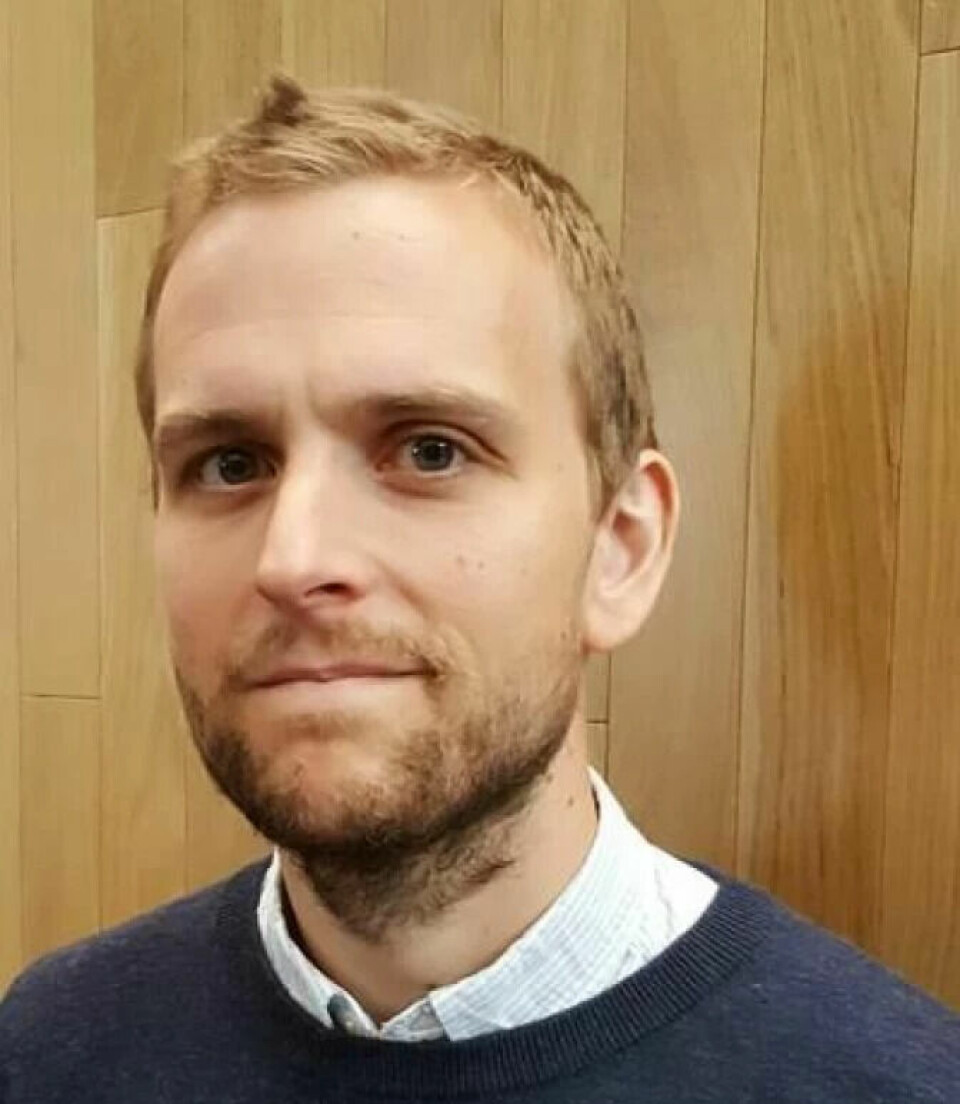
He is educated in psychology and philosophy and works as a professor at the University of Bergen. Berg has also written two books on research in psychology.
“What is believed to be the most important common factor is what is called the therapeutic alliance. That is, the bond between the therapist and the patient and an agreement on the approach and goals of the treatment,” Berg says.
Other important factors are that the therapist is empathetic, straightforward, and genuine in communication with the patient.
“The therapist must also be able to handle their own negative reactions towards the patient. Such negative reactions have been shown to have a very large negative impact on treatment,” he says.
Experience does not help
If this is true, Jonas Ressem's question is quite timely:

Can just about anyone offer talk therapy?
In other words: If the techniques in professional postgraduate training are not that important, perhaps anyone with the right qualities can provide equally good help for less serious mental disorders?
This question becomes even more interesting in light of another peculiar phenomenon from psychology research:
Experience does not help.
Most viewed
Therapists get worse and worse
Usually, professionals become increasingly competent as they gain more experience. But research suggests that this is not the case with psychologists. In the worst case, it may be the opposite!
“Therapists don’t get better and better the more experience they have. They get worse and worse as their career progresses,” Berg says.
Studies have shown that psychologists generally get the best results when they are newly graduated. They then steadily decline but may have an upswing again towards the end of their careers.
“We have not managed to systematically cultivate more effective therapists. It’s a huge challenge,” Berg says.

Five years of training had no effect
Røssberg has also experienced disappointing results. In one study, they spent four years training therapists to use cognitive therapy to treat patients with schizophrenia.
But the results were not what they expected.
“The treatment had a good effect, but it was no better than the control group where the therapists did not have such training,” he says.
A recent study from NTNU also gave a somewhat disheartening result. Researchers examined whether psychology students got better at mentalizing over the course of their studies.
Mentalizing is the ability to understand and predict feelings and reactions in oneself and others.
The results showed that psychology students were better at mentalizing than engineering students right from the start of their studies. However, their ability did not improve during the three years they spent on the course.
As with most topics in psychology, there is disagreement among experts.

But what does all of this really mean?
Are the models and techniques in psychotherapy irrelevant?
And do psychologists have minimal opportunity to train themselves to be better?
Not necessarily.
Svein Magnussen, a professor of witness psychology at the University of Oslo, believes that psychologists' inability to improve with experience may be due to how many psychologists have worked.
“What makes you improve with experience is that you receive feedback,” he says.
Have to see where the balls land
“I often use golf as an example: You can stand and hit golf balls for five years, but you won't get any better if you don't know where they land. You need to get feedback,” he says.
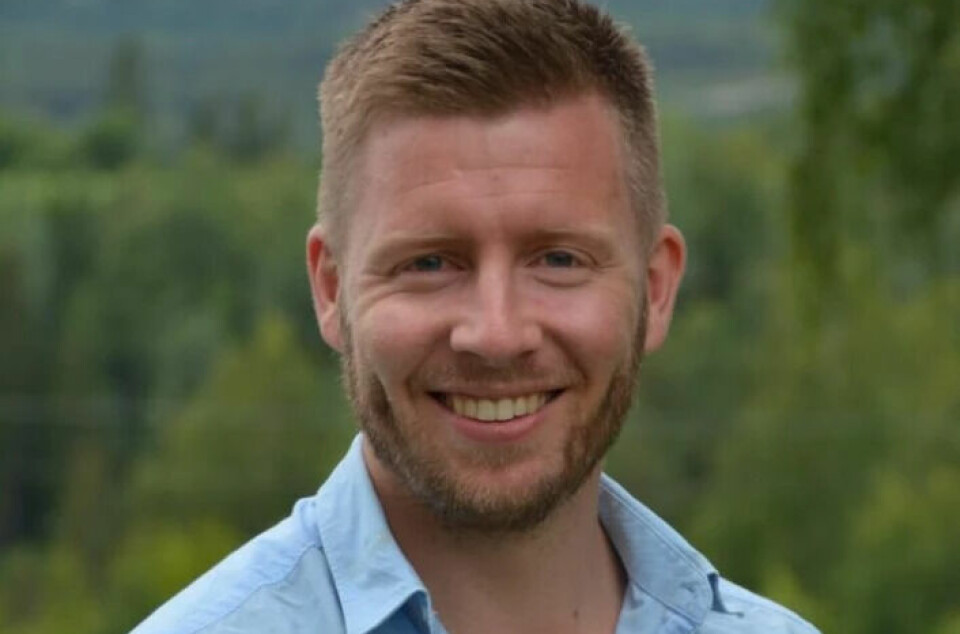
But in many professions where psychologists use their expertise, such as in the legal system, there has been no tradition of systematic feedback.
Therefore, it is also difficult to learn from one's own experiences.
“A pitfall”
Not all experts agree that the most important factors are common factors, namely the relationship between the therapist and the patient or the characteristics of the therapist.
“Can you get help just by talking to people? Yes. But that’s not the same thing as therapy or working systematically to achieve change,” Sverre Urnes Johnson says.
He is a professor and specialist in psychology at the University of Oslo and Modum Bad.
“I believe it’s a pitfall to interpret the data we have today as the only effective elements are common factors,” he says.
For these common factors are created precisely in interaction with the specific methods that therapists use, according to Johnson.
“The alliance between patient and therapist is created in the context of a therapy, a cohesive theoretical rationale that makes sense for the patient,” he says.
Must not stop asking questions
“Professional postgraduate training is needed not only to learn methods based on research but also the ability to understand the patient's preferences and develop clinical expertise so that the psychologist can make good choices,” Johnson says.
It is far too early to conclude what works and what does not work in psychotherapy. We must not stop asking questions or abandon the ambition to find something that works better than something else, Johnsen believes.
“We need to nuance it – not just to common factors and the rest – but how common factors and specific techniques interact. We know too little about this,” he says.
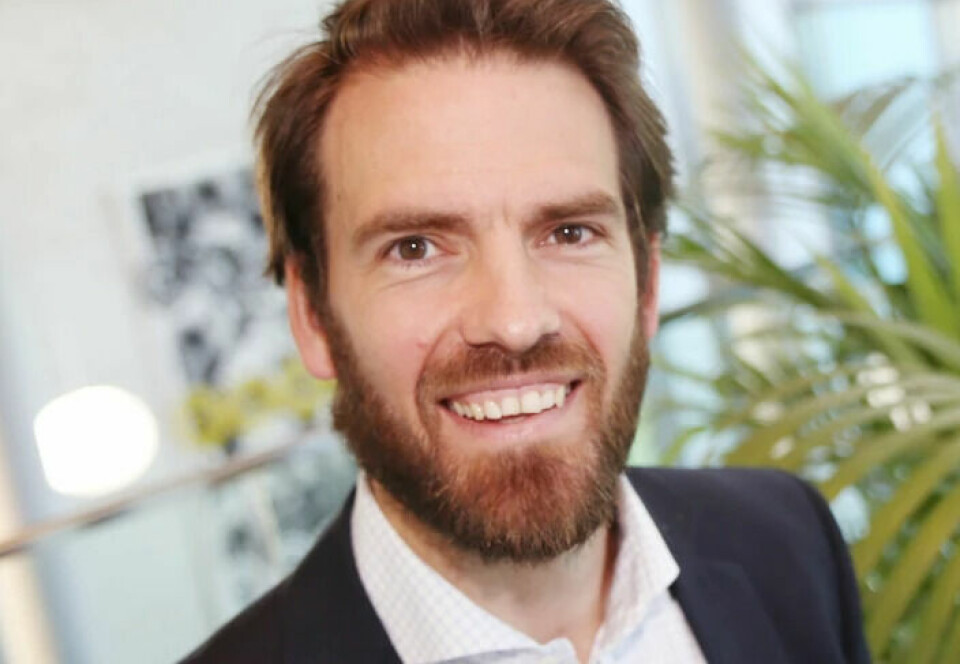
Do not know what is most important
Joar Øveraas Halvorsen, a specialist in psychology and associate professor at NTNU, is also not convinced that the methods are irrelevant.
“We don’t have enough knowledge to claim that common factors are the most important in psychological treatment,” he says.
“Therapeutic alliance is an important prerequisite, but there is a logical flaw in going from there to saying it’s the most important ingredient in treatment.”
“We know that psychotherapy generally has a small to moderate effect, but we do not know why this is the case. There is little reliable knowledge about the mechanisms behind mental health problems and very little knowledge about the mechanisms behind effective treatment,” Halvorsen says.
“Thinking about the relationship”
Regardless of one's position in this debate, it's still probably safe to conclude that we lack a lot of knowledge about what makes psychotherapy effective.
Jonas Ressem has stopped thinking too much about it when he meets people who are struggling, in conversations for the voluntary support service.
“I felt uncertainty in the beginning, that I did not have the same advice and techniques as those with professional education. I've started to put that aside, even though there are probably things they know that I don’t,” he says.
“I don't think about diagnosis and don't bring that perspective with me. Instead, I think about relationship and conversation. It’s important to create the good relationship.”
———
Translated by Alette Bjordal Gjellesvik.
Read the Norwegian version of this article on forskning.no
Images:
Illustration of man with beard in profile at the top of the article: Lia Koltyrina / Shutterstock / NTB
Illustration of woman in profile: Metamorworks / Shutterstock / NTB
Illustration of man in profile: Billion Photos / Shutterstock / NTB
Illustration of woman seen from the front: Tikhonova Yana / Shutterstock / NTB














